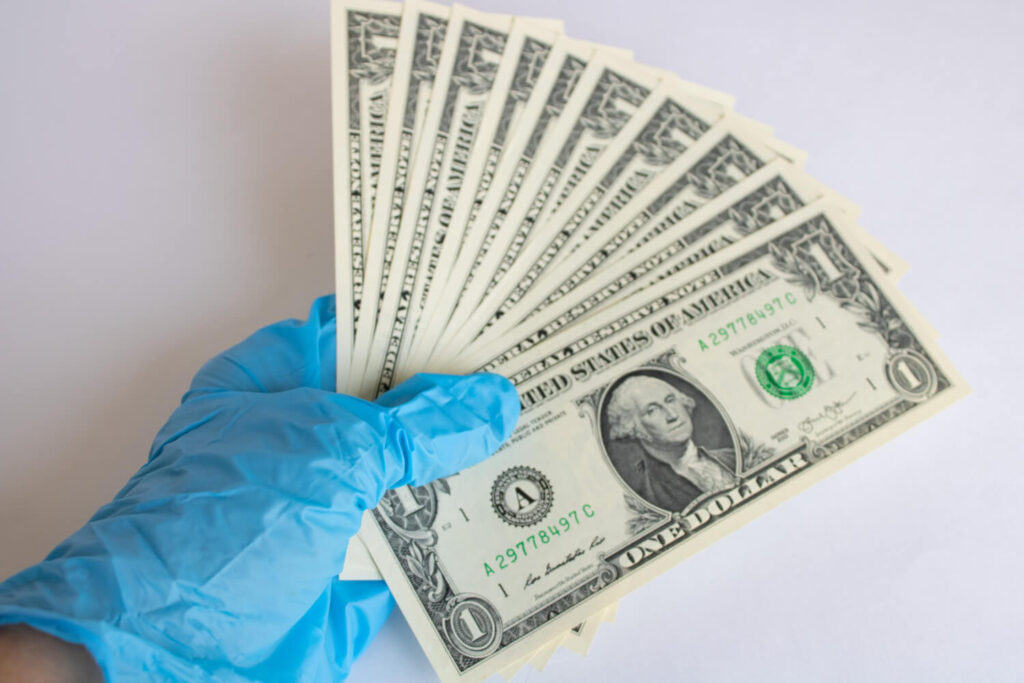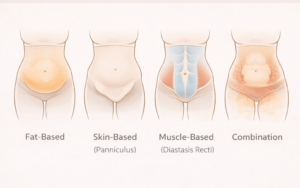When we think about plastic surgery, what often comes to mind is the aesthetic transformation and the boost in self-confidence. But a common question for those planning a procedure is: how much will it cost?
If you’ve found yourself researching prices, you know that the cost of plastic surgery can vary a lot. And we’re not talking about small differences, but several factors that directly influence the final price.
From the surgeon’s experience to the type of anesthesia used, every detail matters. Understanding these points can help you make a more informed decision. Want to know what the main factors that impact the cost of plastic surgery are? Keep reading and find out how to plan your aesthetic investment more clearly and consciously.
1. Location of the clinic
One of the most influential factors impacting the cost of plastic surgery is the location of the clinic where the procedure will take place.
In areas with a higher cost of living, such as major cities or prestigious neighborhoods, plastic surgery tends to be more expensive. This is because the overall demand for services in these areas is higher, and the costs of running a clinic, from rent to salaries for medical staff, are generally more substantial.
Additionally, clinics in metropolitan areas often have access to more advanced facilities and technologies, which can raise prices. The location can also impact the quality of care, as regions with higher costs frequently attract highly experienced surgeons, which further increases the overall expense of the procedure.
2. Surgeon’s experience
Another important factor that impacts the cost of plastic surgery is the surgeon’s experience. Plastic surgeons with many years of practice, specializations, and recognition in the field of aesthetics tend to charge more for their services. This is because experience adds value to the procedure, ensuring greater safety and more refined results.
Highly qualified surgeons, like those at Illusions Plastic Surgery, invest years of study and technical improvement to ensure their patients achieve the best possible outcomes. When considering the factors that impact the cost of plastic surgery, it’s essential to remember that experience comes at a price, but it can also make all the difference in your satisfaction with the final result.
3. Type of procedure
The type of surgery you choose also directly affects the cost. Procedures like facelifts, liposuction, breast augmentation, or rhinoplasty vary widely in complexity and recovery time, which influences the final price.
Minimally invasive surgeries, such as laser treatments or fillers, tend to be more affordable, while complete surgical procedures, which require more operation time and technical skills, are more expensive.
Additionally, the level of customization of the procedure can influence the price. A facelift that requires more complex adjustments or a liposuction that covers larger areas of the body can be significantly more expensive than simpler procedures.
4. Anesthesia costs
Anesthesia costs are another factor that can significantly increase the total value of your plastic surgery. Anesthesia can be local, regional, or general, and the type needed depends on the chosen procedure.
Simpler procedures, such as filler injections, may only require local anesthesia, while a full abdominoplasty requires general anesthesia, which is more expensive.
In addition, the anesthesiologist – the doctor responsible for administering and monitoring the anesthesia – also charges for their services, and their fees vary based on their experience and the level of care required during the surgery.
5. Equipment and facilities
Modern clinics, like Illusions Plastic Surgery, often invest in state-of-the-art equipment to ensure patients receive the best possible results and a safe process. However, this investment in technology comes at a cost, which may be reflected in the final price of the surgery.
High-tech equipment, advanced operating rooms, and innovative techniques – such as J-Plasma, a technology used to treat sagging skin – are factors that impact the cost of plastic surgery.
Additionally, facilities must follow strict safety regulations, which include proper sterilization, constant medical monitoring, and infection control measures, all of which add to the procedure’s price.
6. Recovery complexity
Post-operative recovery is another factor that affects the costs of plastic surgery. More invasive procedures, like abdominoplasty or thigh lifts, require longer recovery times and may include frequent office visits, medications, and even the use of special compression garments.
These additional factors increase the total cost of the surgery, especially if follow-up consultations and treatments are necessary to ensure proper recovery.
7. Administrative fees and licenses
Finally, another aspect to consider when evaluating the factors that impact the cost of plastic surgery are administrative fees and licensing. To operate legally and safely, clinics must adhere to strict regulations that vary from state to state. In locations like West Palm Beach, the requirements may be more rigorous, leading to higher operational costs for clinics.
These additional costs are passed on to the patients and can include licenses, insurance, and periodic safety audits. Although these fees may seem invisible to the patient, they are essential to ensure that the clinic operates within the safety and hygiene standards required by authorities.
How to plan your investment in plastic surgery?
If you’re considering plastic surgery, it’s essential to financially prepare for the procedure. Planning your investment wisely can make a big difference, both in the success of your treatment and your peace of mind throughout the process. Here are some practical tips to help you get organized:
- Research the costs of the procedures: Consult different clinics and check the price variation among them. Keep in mind that costs can vary significantly depending on the location, the surgeon’s experience, and the complexity of the procedure. Compare not only the prices but also what each clinic offers in terms of support and infrastructure.
- Consider financing options: Many plastic surgery clinics offer financing options, which can make the procedure more affordable. Installment plans allow you to spread the cost over time, making it easier to manage your budget. Research the conditions offered by the clinics and choose one that suits your financial profile.
- Account for all involved costs: Don’t forget to include all the costs involved in the procedure, beyond the surgery itself. Expenses such as pre-operative consultations, exams, anesthesia, post-operative care, and medications can increase the final price. Make sure all these factors are accounted for in your budget.
- Evaluate the Cost-Benefit Ratio: While it might be tempting to choose the cheapest option, remember that when it comes to plastic surgery, the lowest price isn’t always the best choice. Evaluate the cost-benefit of the procedure, considering the surgeon’s experience, the clinic’s quality, and the support provided. Sometimes paying a little more can ensure better results and a safer experience.
- Have an emergency fund: Even with careful planning, unforeseen circumstances can arise. You may need more recovery time or additional care after the surgery. That’s why it’s a good idea to have an emergency fund to cover any extra expenses that may come up during the process.
With these tips, you’ll be better prepared to plan your investment in plastic surgery in a conscious and safe manner, ensuring the process is as smooth as possible and the result meets your expectations.
If you’re ready to transform your appearance and want a safe, high-quality experience, get to know Illusions Plastic Surgery. Our team of specialists is prepared to help you achieve your aesthetic goals with safety and confidence.
Schedule a consultation today and discover how we can make your transformation a reality!







